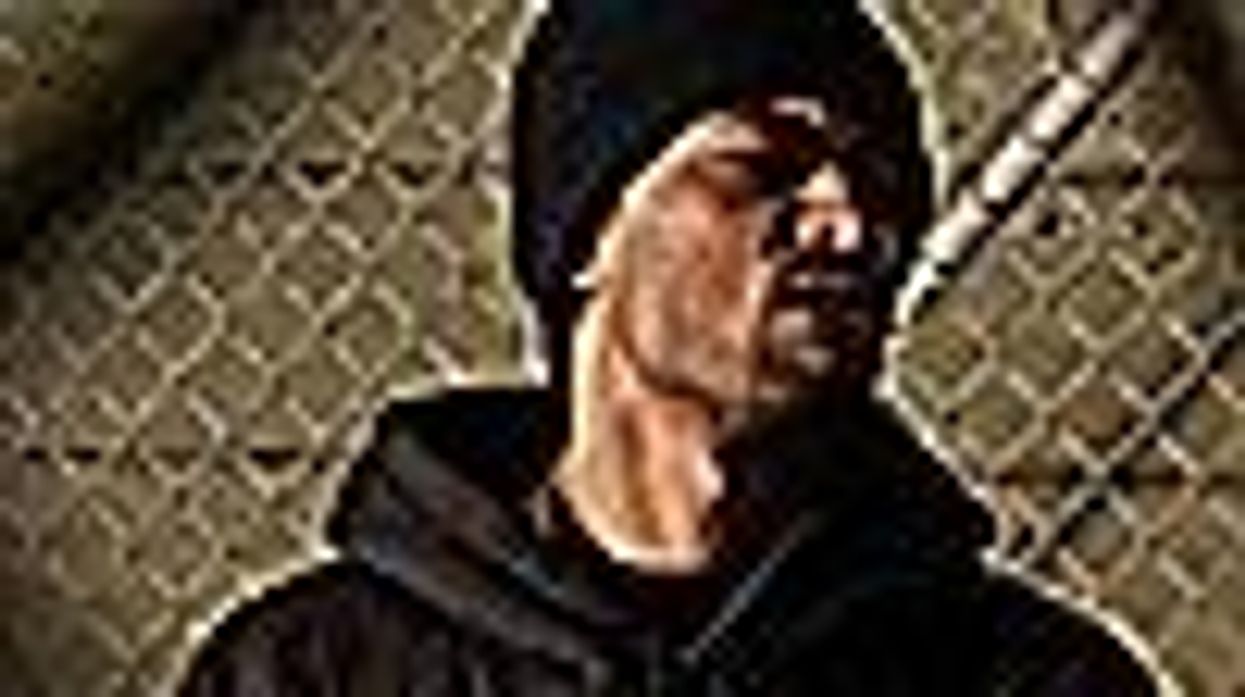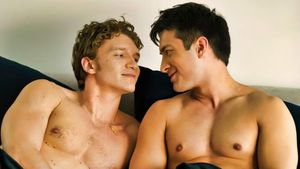I had just exited my stop on the subway
after a particularly long day at the office, and I was
grateful to stretch my legs and enjoy the crisp
November air. I popped in my headphones, turned on
some music, and began my five-minute walk towards
my apartment in the Brooklyn, N.Y., neighborhood
where I live.
On my walk home I always pass a bodega.
As I walked by, I noticed a group of young men glaring
menacingly at me. I didn't know who they were, and
my headphones muffled their voices. I decided to
mind my business. I wanted to get home and put
together a grocery list for the next day at the Union
Square farmers market.
Then, out of nowhere, a fist flew towards my
face, hitting me square in the jaw. I stopped dead
in my tracks. Stunned for a moment, I finally
turned to see who it was and watched the three young men
from the bodega laughing and running off. One of
them looked back at me and shouted something I
couldn't fully make out, but it sounded like "she-male."
The cool air felt good on my swollen cheek.
I slowly dialed 911. The operator reassured me
that a police car was nearby and that officers
would come to my house and take a hate crime report. The
operator promised they were only five minutes
away. When I made it home, my two roommates
listened with horror as I quietly recounted my assault.
I decided to call my parents and a few close
friends, and similarly they had the same reaction
of disbelief. I placed some ice in a bag and headed
to my bathroom. As I looked at myself in the mirror, I
finally broke down in sobs. The police never came
by my house to take a report.
The following day I reported the incident to
the New York City Anti-Violence Project. Founded
in 1980, the organization responds to anti-LGBT
violence and the failures of the criminal justice system
concerning such crimes. The night before, I had jotted
down some notes, and I shared them with a
counselor at the agency. Even though I work in the
LGBT community and knew that my story was not uncommon,
it was still startling when the counselor
confirmed that my notes reflected others'
accounts and described the rising trend of hate violence
in the city and across the country.
I'm not angry about my attack. Instead, I'm
left confused and wondering: Why do people hate
others who are different?
This is a question that hasn't been fully
explored by journalists and reporters covering
hate crimes. Most news coverage is centered on the
legal implications or the aftermath of violence and how
it affects the community. With the tragic losses
of Gwen Araujo and F.C. Martinez, we understand
that their murderers were found guilty and justly given
sentences. But what we don't understand is what provoked
such feelings of hatred and bigotry in the first
place. Where do these feelings come from? Why do
these attackers lash out?
More often than not, a community that has
lost someone due to hate violence is left
struggling to answer these questions and provide some
kind of peaceful closure. Similarly, I am left wondering
what triggered three young men to attack me. Was
it because I am a transgender woman? Because I am
Korean-American? Both? Given the lack of media coverage
of what provokes such violent actions, many
victims like me are left without peace of mind.
The stories of violence against LGBT people
are essential to raising awareness about hate
crimes. And the media have a tremendous opportunity
to tell them by digging deeper and investigating why
hate-motivated violence occurs. Many debate the
most effective approach to preventing hate crimes,
but everyone agrees that education is key to building
awareness and acceptance.
In the days after the attack, I decided to
take a trip to visit my parents to clear my head
and retreat somewhere that felt safe. When I
stepped off the train and walked into the Albany,
N.Y., station, I found my father waiting for
me with open arms. A sense of relief flooded my
body and I began to feel like myself again. As we drove
into my hometown, I knew it was a good decision to
come home.
The following day my father took me
shopping. After spending several hours in a few
malls, the car trunk was loaded with purchases. Driving
back home, our conversation shifted from
the midterm election to the holidays. My
father pursed his lips and began to express his dismay
over people who only give to those in need during
the holidays. "Its great that we're able to
organize holiday meals for those without," he
said. "But what happens in between holidays? Instead of
rallying around a holiday, shouldn't our
generosity translate to year-round action? Don't
people realize that the homeless are left hungry every day?"
That conversation stuck with me during the
rest of my visit. On my scenic train trip back to
New York City, I came across the piece of paper on
which I had scribbled notes about my attack. My memories
of the unfortunate incident crept back into my
head, leaving me feeling fearful. But as painful
as it was, I realized that it was important for me to
continue thinking about it. Like my father said about
giving between the holidays, I needed to keep the
incident fresh in my mind so I could better
understand it--and help others from being attacked
simply because they are different.




































































Charlie Kirk DID say stoning gay people was the 'perfect law' — and these other heinous quotes